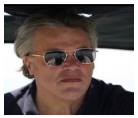| By By K. Lee Lerner |
The 42nd edition of the venerable and widely trusted American Men & Women of Science has officially released and introduces 2,000 new listees to this premier compendium of accomplished American scientists.
In continuous publication since 1906, American Men & Women of Science showcases the vital work and achievements of prominent scientists in all the major scientific fields, including science, technology, engineering, and mathematics (STEM) areas. A few noteworthy scientists of interest in the 42nd edition include:
Sekazi Kauze Mtingwa, an American theoretical high-energy physicist and co-founder of the National Society of Black Physicists has, over his long career, offered fundamental contributions to optimizing the performance of particle accelerators used to search for subatomic particles and confirm and refine important components of the Standard Model and Quantum Chromodynamics (QCD). Mtingwa has also made significant contributions to QCD, a fundamental quantum field theory predicting how light and matter interact and how the quarks bind into protons, neutrons, and other particles. In 2008, Mtingwa led an important American Physical Society study on the U.S. nuclear workforce that resulted in a substantial increase in government funding of nuclear physics and engineering education.
Neil K. Garg is an American chemist and biochemist whose work has advanced the teaching of organic chemistry, especially the synthetic creation of complex molecules upon which modern medicines depend. Garg, also an author of books on science designed for children and the general public, was the recipient of the 2023 AAAS Mani L. Bhaumik Award for Public Engagement with Science, which “recognize[s] scientists and engineers who demonstrate excellence in their contribution to public engagement with science.”
Peter Jay Hotez is an American scientist, pediatrician, and advocate in the fields of global health, vaccinology, and neglected tropical diseases (NTDs). A diverse group of communicable diseases that prevail in tropical and subtropical conditions, NTDs affect more than 1 billion people and impoverish many communities and countries where they are endemic. Hotez has made substantial contributions to research on vaccines, especially potential vaccines for NTDs, while working to ensure that vaccines are accessible and affordable to the populations most in need.
Walter C. Willett is a renowned American physician and nutritionist. A professor of epidemiology and nutrition at the Harvard T.H. Chan School of Public Health and a professor of medicine at Harvard Medical School, Willett is known for a career of foundational contributions to the fields of epidemiology and nutritional science, including the development of nutritional epidemiology—a discipline that seeks to understand the relationships between diet, nutritional status, lifestyle influences, and the incidence of disease. Willett’s research has significantly influenced evidence-based dietary guidelines and the relationship between components of diet (e.g., dietary fats, carbohydrates, protein, fiber, and micronutrients) and chronic diseases like cancer, cardiovascular disease, and diabetes.
American chemist Louis Edward Brus, along with Moungi G. Bawendi and Alexei Ekimov, was awarded the 2023 Nobel Prize in Chemistry for the independent discovery and synthesis of quantum dots (i.e., colloidal semiconductor nanocrystals) while working at Bell Labs in the early 1980s. A revolution in nanotechnology, quantum dots are nanometer-sized semiconductor particles that exhibit unique electronic properties explainable by quantum mechanics. Now a professor of chemistry at Columbia University, Brus’s work finds applications in medical imaging, media and other display technologies, light-emitting diodes (LEDs), solar cells, and quantum computing research.
American immunologist and researcher Drew Weissman, along with Katalin Karikó, was awarded the 2023 Nobel Prize in Physiology or Medicine in recognition of his pioneering work on messenger RNA (mRNA) technology, which played a crucial role in the rapid development of COVID-19 vaccines after the start of the COVID-19 pandemic. The mRNA vaccines and booster developed, including those produced by Pfizer-BioNTech and Moderna, use a strand of synthetic mRNA to instruct cells to produce a protein that is part of a SARS-CoV-2 virus (the virus that causes COVID-19) in order to trigger an immune system response without exposing the vaccine recipient to the disease.
American Men & Women of Science, 42nd edition, is available in print and eBook format on the Gale eBooks platform.
 About the Author
About the Author
Recognized for his use of language, accuracy, and balanced presentation, K. Lee Lerner’s portfolio covering science and global issues for Cengage includes two ALA RUSA Book and Media Awards and two works named Outstanding Academic Titles. Holding degrees in science, education, and journalism, including a master’s degree with academic honors from Harvard, Lerner has served on the board of advisors for the venerable American Men and Women of Science since 2003 and, along with Brenda Wilmoth Lerner, as coeditor for three editions of the Gale Encyclopedia of Science. He was the contributing editor-in-chief for Gale’s Encyclopedia of Espionage, Intelligence, and Security. A member of the National Press Club in Washington, DC, Lerner is an experienced aviator and sailor who has completed two global circumnavigations. His Academia site consistently ranks among those most frequently accessed by students, scholars, and decision-makers from around the world. Additional information may be found at https://scholar.harvard.edu/kleelerner and https://harvard.academia.edu/KLeeLerner/

